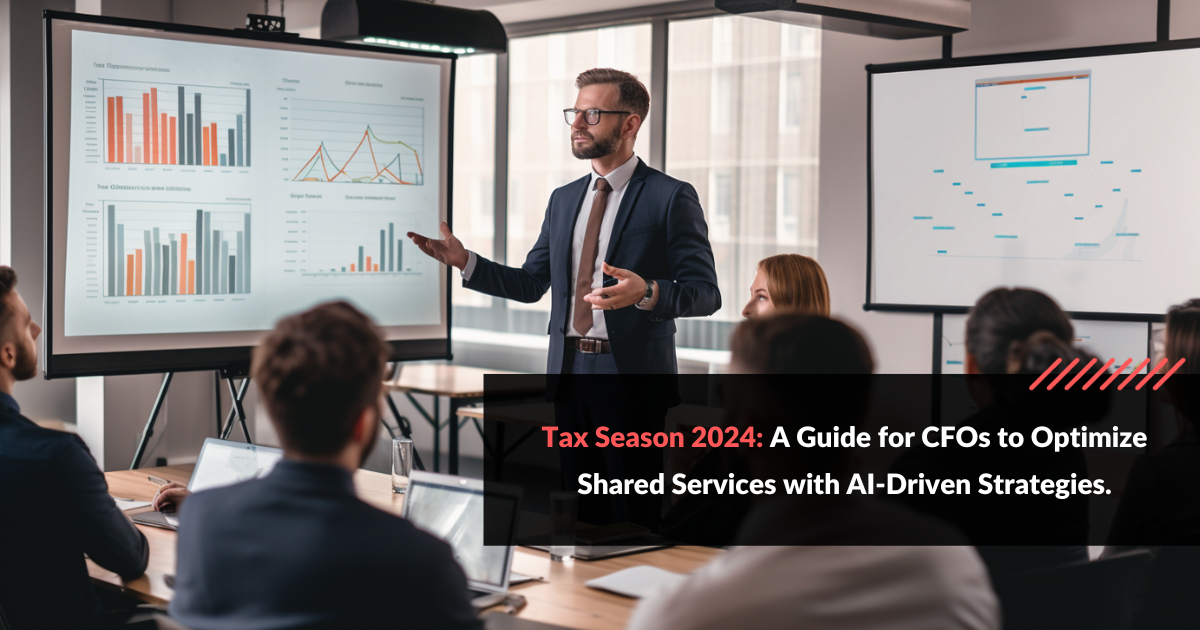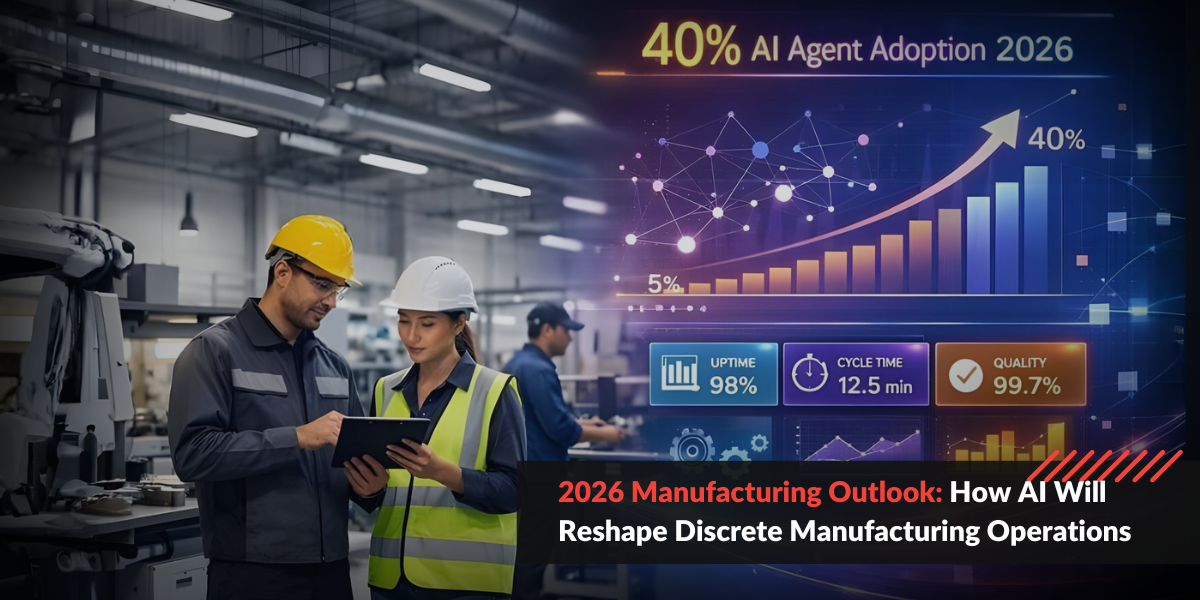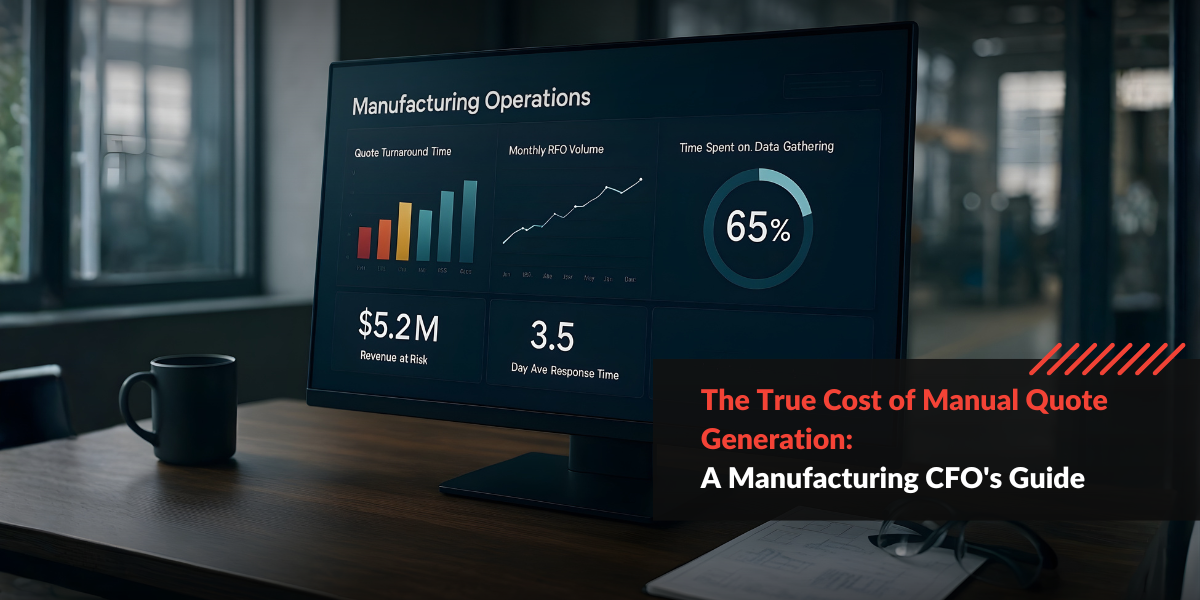As tax season 2024 approaches, CFOs of shared services are gearing up for the annual whirlwind of numbers and deadlines. This year, there’s a fresh emphasis on leveraging AI and hyperautomation to tackle the workload efficiently. This blog sheds light on how adopting a tech-savvy approach can transform challenges into opportunities. Get ready to explore the blend of strategy and technology that promises to streamline the tax process, setting a new benchmark for accuracy and compliance.
The Overwhelming Workload: Unpacking the Challenges
The tax season, often referred to as the busiest time of the year for accountants and KPOs, presents a unique set of challenges. The term “overwhelming workload” isn’t just a buzzword; it encapsulates a myriad of practical difficulties that professionals face during this period. Here’s a breakdown:
- Volume of Returns: The sheer number of tax returns that need to be processed is staggering. Both individual taxpayers and businesses are rushing to meet the deadline, leading to a sudden influx of work.
- Complexity of Returns: Not all tax returns are straightforward. Many involve intricate details, deductions, credits, and multi-state transactions. Each return requires careful attention to ensure accuracy.
- Multi-State Transactions: With businesses operating across state lines, accountants often have to navigate the tax laws of multiple states. Each of the 52 states in the USA has its own set of tax preparation rules, making the process even more complex.
- Time Constraints: The tax season is confined to a tight window of just two and a half months. This limited timeframe intensifies the pressure, as accountants have to ensure that every return is processed accurately and on time.
- Risk of Errors: With the pressure to process a high volume of returns quickly, there’s an increased risk of errors. Mistakes in tax returns can lead to penalties, audits, and loss of credibility for the KPO.
- Client Expectations: Clients expect their returns to be processed swiftly and accurately. Meeting these expectations while managing the increased workload can be a daunting task.
- Operational Challenges: Scaling operations to handle the increased workload isn’t just about processing more returns. It involves managing additional staff, ensuring that technology systems can handle the surge, and maintaining communication lines with clients.
- Regulatory Updates: Tax laws and regulations are constantly evolving. Keeping up with the latest changes and ensuring that they are correctly applied to each return adds another layer of complexity.
- Cybersecurity Concerns: The increased online activity during the tax season makes KPOs more vulnerable to cyberattacks. Ensuring the security of sensitive client data becomes paramount.
38% of businesses haven’t integrated their accounting software with invoicing or payments solutions due to security concerns.
source: viewpost
- Mental and Physical Strain on Staff: The long hours, high pressure, and constant attention to detail can take a toll on the well-being of the staff. Ensuring that they remain motivated and healthy is crucial.
Strategic Planning for CFOs: Embracing the Future with AI-First Hyperautomation
In today’s rapidly evolving financial landscape, the role of a CFO extends beyond traditional financial stewardship. As organizations navigate the complexities of the digital age, CFOs are uniquely positioned to drive transformative change, especially in areas like tax preparation and compliance. The tax season, with its inherent challenges, underscores the need for innovation and efficiency. For CFOs, this period is not just about navigating the immediate hurdles but also about envisioning a future where technology, particularly AI-first hyperautomation, plays a pivotal role in shaping success.
The integration of AI and automation into financial processes is no longer a luxury but a necessity. As the volume of data grows and the demand for real-time insights intensifies, manual processes and legacy systems prove inadequate. CFOs, at the helm of financial decision-making, have the opportunity to lead their organizations into a new era of efficiency, accuracy, and growth. By strategically embracing AI-first hyperautomation, they can redefine the very essence of tax season preparedness and execution.
- Assessment of Current Processes: Before implementing any new technology, it’s crucial to assess the current processes. Identify bottlenecks, inefficiencies, and areas that are most prone to errors. This will provide a clear roadmap for where automation and AI can be most beneficial.
- Invest in AI-First Hyperautomation: Hyperautomation, which combines AI with Robotic Process Automation (RPA), offers a comprehensive solution. It not only automates repetitive tasks but also brings intelligence to the process, ensuring decisions are data-driven and optimized.
“Artificial intelligence in the accounting market was valued at USD 0.87 billion in the previous year and is expected to register a CAGR of 32.58%, reaching USD 11.0 billion by the next five years” source: Mordor Intelligence
- Continuous Learning and Adaptation: AI thrives on data. The more data it processes, the better it becomes. By adopting an AI-first approach, CFOs ensure that their systems continuously learn and adapt, making each tax season more efficient than the last.
- Enhanced Data Security: With the rise of cyber threats, especially during high-activity periods like the tax season, investing in AI-driven security solutions can safeguard sensitive financial data.
- Scalability: One of the significant challenges during the tax season is scaling operations to handle the increased workload. Cloud-based AI solutions can scale up or down based on demand, ensuring optimal resource utilization.
- Real-time Analytics and Reporting: AI-driven systems can provide real-time insights into the tax preparation process. This allows CFOs to make informed decisions, allocate resources effectively, and anticipate challenges before they become critical.
- Future-Proofing: The world of finance is evolving rapidly. By adopting an AI-first approach, CFOs ensure that their operations are not just optimized for the present but are ready for future challenges and opportunities.
- Collaboration with Tech Experts: It’s essential for CFOs to collaborate closely with IT teams and external tech experts. This ensures that the adopted solutions are aligned with the company’s goals, are integrated seamlessly, and are updated regularly.
Implementation and Execution: Bringing Strategy to Life
Transitioning from strategy to action is a pivotal phase. It’s not just about adopting new technology but ensuring that it’s integrated seamlessly into the existing workflow. Starting with pilot testing allows CFOs to gauge the effectiveness of the AI-first hyperautomation in a real-world setting. This initial phase provides invaluable insights, highlighting areas of improvement and ensuring that when the system is rolled out on a larger scale, it operates flawlessly.
Engaging stakeholders is equally crucial. Whether it’s the internal team or clients, understanding their concerns, expectations, and feedback can significantly influence the success of the implementation. Moreover, as with any major transition, there might be apprehensions. Addressing these through transparent communication, training sessions, and workshops can foster a positive environment, conducive to change.
Similar transformations are being championed outside of finance too. In the hospitality sector, CTOs are making compelling budget cases by showing how AI can boost guest satisfaction, reduce downtime, and drive measurable ROI. Explore how hospitality leaders are positioning AI strategically
One of the most compelling success stories in this domain is of a leading KPO that embraced AI-first hyperautomation. By integrating advanced AI-driven tools and processes, they achieved a staggering reduction in operational expenditure by 70%. Such tangible results not only underscore the efficacy of the solution but also serve as a testament to its transformative potential. For a detailed case study on this remarkable achievement, visit our website.
In conclusion, while the challenges of the tax season are manifold, with strategic planning and effective implementation of AI-first hyperautomation, CFOs can not only navigate this period successfully but also set the foundation for sustained efficiency and growth.




